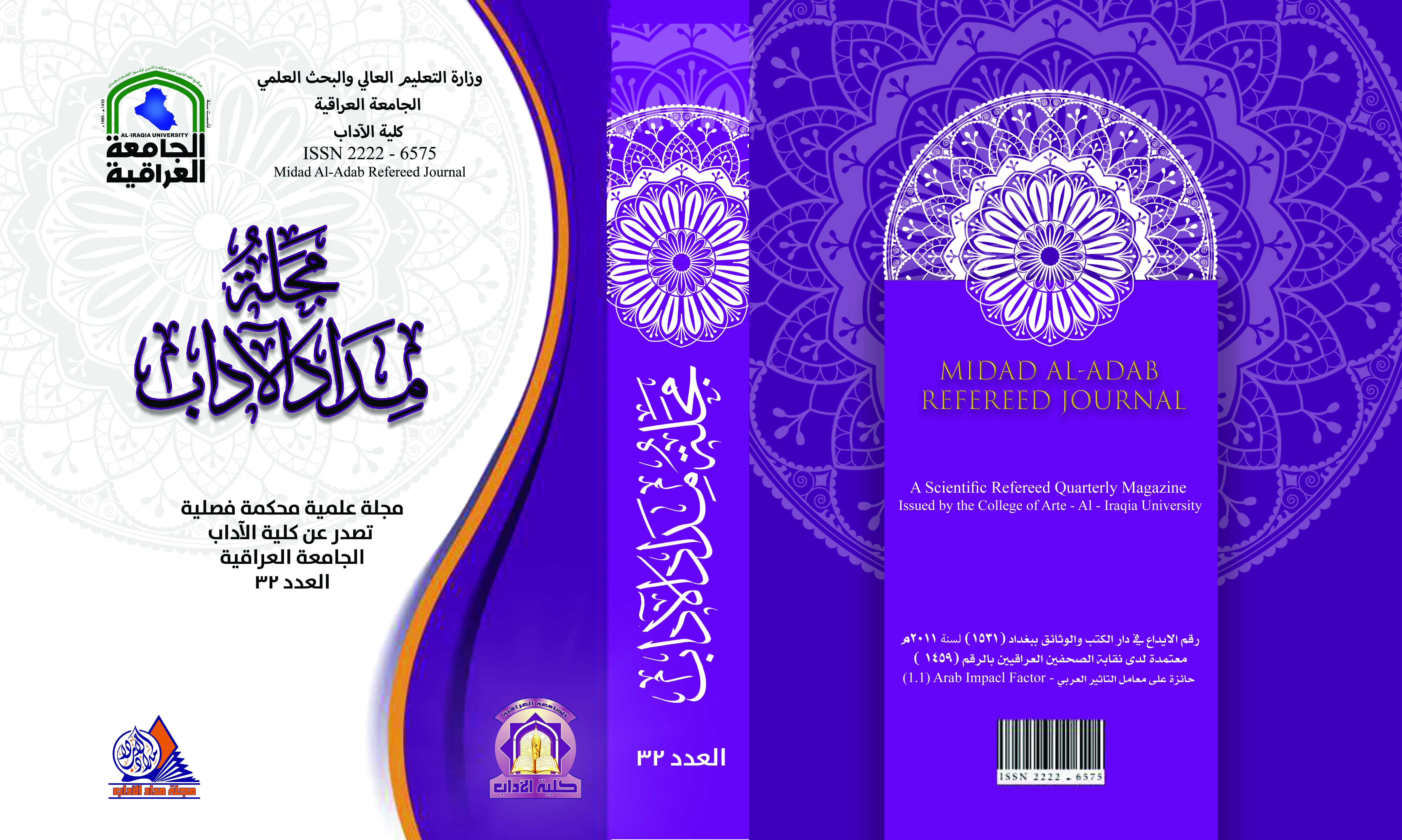Abstract
Abstract
The research dealt with explaining the impact of the jurisprudential rules on the arguments of grammarians, and that this impact is rooted since ancient times, as the principles of grammar are taken from the principles of jurists, such as listening, analogy, consensus, and presumption, and some grammatical rules were also taken from the rules of jurists, such as the indefinite after the negation indicates generality, and the word (all) indicates generality, and that the definite plural can be excepted from it as a connected exception unlike the indefinite, and among these grammatical rules also (what is permissible as a consequence and not permissible independently) which the evidence for it did not become clear to jurists until later, so perhaps that was the reason why grammarians were not influenced by it until the fifth century AH.
During the research, I showed the first jurists who argued with it, as well as grammarians, and reviewed the methods of arguing with this jurisprudential rule, sometimes I find them arguing with it against the rooted grammatical arguments, and other times they justify some grammatical rulings and opinions, supporting that with examples and statements.
The most prominent results of the research:
- Explaining the impact of the rules of jurists on the science of grammar.
- The grammatical influence of jurists occurs despite the delay of the jurisprudential rule.
- Explaining the methods of late grammarians in relying on the rule (what is permissible as a consequence and not permissible independently).
- The rule (what is permissible as a consequence and not permissible independently) is characterized by comprehensiveness and generality, as it requires a standard and criterion that organizes it.
The research dealt with explaining the impact of the jurisprudential rules on the arguments of grammarians, and that this impact is rooted since ancient times, as the principles of grammar are taken from the principles of jurists, such as listening, analogy, consensus, and presumption, and some grammatical rules were also taken from the rules of jurists, such as the indefinite after the negation indicates generality, and the word (all) indicates generality, and that the definite plural can be excepted from it as a connected exception unlike the indefinite, and among these grammatical rules also (what is permissible as a consequence and not permissible independently) which the evidence for it did not become clear to jurists until later, so perhaps that was the reason why grammarians were not influenced by it until the fifth century AH.
During the research, I showed the first jurists who argued with it, as well as grammarians, and reviewed the methods of arguing with this jurisprudential rule, sometimes I find them arguing with it against the rooted grammatical arguments, and other times they justify some grammatical rulings and opinions, supporting that with examples and statements.
The most prominent results of the research:
- Explaining the impact of the rules of jurists on the science of grammar.
- The grammatical influence of jurists occurs despite the delay of the jurisprudential rule.
- Explaining the methods of late grammarians in relying on the rule (what is permissible as a consequence and not permissible independently).
- The rule (what is permissible as a consequence and not permissible independently) is characterized by comprehensiveness and generality, as it requires a standard and criterion that organizes it.
Abstract
مستخلص
تناول البحث بيان أثر القواعد الفقهية في حجج النحويين، وأن هذا الأثر متأصل منذ القدم ،فأصول النحو مأخوذ من أصول الفقهاء، كالسماع والقياس والإجماع والاستصحاب، وبعض القواعد النحوية أخذت أيضاً من قواعد الفقهاء ،كالنكرة بعد النفي تفيد العموم، وإفادة لفظة(كل) للعموم، وأن الجمع المعرف يصح الاستثناء منه استثناء متصلا بخلاف المنكر، ومن هذه القواعد النحوية أيضا (ما يجوز تبعا ولا يجوز استقلالا) التي لم يتضح الاستدلال بها عند الفقهاء إلا متأخرا، فلعل ذلك كان سببا في أن النحويين لم يـتأثروا بها إلا في القرن الخامس الهجري.
وقد بينت في أثناء البحث أول من احتج بها من الفقهاء، وكذلك من النحويين، واستعرضت طرق الاحتجاج بهذه القاعدة الفقهية، فتارة أجدهم يحتجون بها مقابل الحجج النحوية المتأصلة، وتارة أخرى يعللون بها بعض الأحكام والآراء النحوية داعما ذلك بالأمثلة والأقوال.
وأبرز نتائج البحث:
- بيان أثر قواعد الفقهاء في علم النحو.
- التأثر النحوي بالفقهاء يقع رغم تأخر القاعدة الفقهية.
- بيان طرق النحويين المتأخرين في الاعتداد بقاعدة ( ما يجوز تبعا ولا يجوز استقلالا).
- أن قاعدة (ما يجوز تبعا ولا يجوز استقلالا) تتسم بالشمول والعموم، فهي تستدعي الضابط والمقياس المنظم لها.
تناول البحث بيان أثر القواعد الفقهية في حجج النحويين، وأن هذا الأثر متأصل منذ القدم ،فأصول النحو مأخوذ من أصول الفقهاء، كالسماع والقياس والإجماع والاستصحاب، وبعض القواعد النحوية أخذت أيضاً من قواعد الفقهاء ،كالنكرة بعد النفي تفيد العموم، وإفادة لفظة(كل) للعموم، وأن الجمع المعرف يصح الاستثناء منه استثناء متصلا بخلاف المنكر، ومن هذه القواعد النحوية أيضا (ما يجوز تبعا ولا يجوز استقلالا) التي لم يتضح الاستدلال بها عند الفقهاء إلا متأخرا، فلعل ذلك كان سببا في أن النحويين لم يـتأثروا بها إلا في القرن الخامس الهجري.
وقد بينت في أثناء البحث أول من احتج بها من الفقهاء، وكذلك من النحويين، واستعرضت طرق الاحتجاج بهذه القاعدة الفقهية، فتارة أجدهم يحتجون بها مقابل الحجج النحوية المتأصلة، وتارة أخرى يعللون بها بعض الأحكام والآراء النحوية داعما ذلك بالأمثلة والأقوال.
وأبرز نتائج البحث:
- بيان أثر قواعد الفقهاء في علم النحو.
- التأثر النحوي بالفقهاء يقع رغم تأخر القاعدة الفقهية.
- بيان طرق النحويين المتأخرين في الاعتداد بقاعدة ( ما يجوز تبعا ولا يجوز استقلالا).
- أن قاعدة (ما يجوز تبعا ولا يجوز استقلالا) تتسم بالشمول والعموم، فهي تستدعي الضابط والمقياس المنظم لها.
